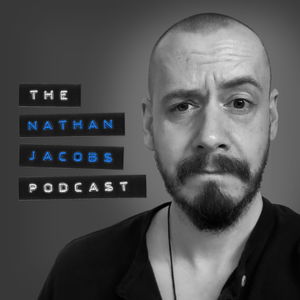In this fourth installment on the Problem of Evil, Dr. Jacobs explores the complex relationship between divine providence and human freedom. What does it mean that God delegates subsovereignce to creation? And how does divine foreknowledge interact with human self-determination? Tune in as we examine biblical figures like Abraham, Job, and Saul alongside the desecration of goodness and the atheist's problem with evil. This episode lays crucial groundwork for understanding the synergistic nature of providence before our final exploration of theodicy.
All the links:
X: https://x.com/NathanJacobsPod
Spotify: https://open.spotify.com/show/0hSskUtCwDT40uFbqTk3QS
Apple Podcast: https://podcasts.apple.com/us/podcast/the-nathan-jacobs-podcast
Instagram: https://www.instagram.com/thenathanjacobspodcast
Substack: https://nathanajacobs.substack.com/
Website: https://www.nathanajacobs.com/
Academia: https://vanderbilt.academia.edu/NathanAJacobs
00:00:00 Intro
00:02:13 The rational ordering principle
00:13:17 What is the individual?
00:32:05 Divine foreknowledge
00:40:08 Abraham, Job, & Saul
00:52:06 Providence: blueprint or synergy?
01:01:29 The desecration of goodness
01:08:28 The atheist’s evil problem
01:18:51 So why doesn’t God intervene?
01:34:30 God delegates subsovereignce
01:46:06 A critical feature of providence
01:49:51 What DOES God do?
01:56:49 The divine energies
02:16:40 The synergistic nature of providence
02:27:17 Engaging in self-determination
Other words for the algorithm…
Leibniz, A defense of God, Epicurus, David Hume, Heraclitus, The Problem of Pain, The Problem of Divine Hiddenness, Christianity, Eastern Christianity, Orthodox Christian, Christianity, Evangelical, Protestant, Catholicism, Catholics, pantheism, Empedocles, body-soul dualism, metaphysical dualism, Manichaeism, Augustine of Hippo, Plato, Aristotle, Socrates, C.S. Lewis, Mere Christianity, Nicene Creed, The Arian Dispute, Christology, Seven Ecumenical Councils, Jonathan Pageau, Fr. Josiah Trenham, Jordan Peterson, Pints With Aquinas, Christian apologetics, theology, Alex O'Connor, John of Damascus, Alvin Plantinga, modal logic, Scholastics, the consequent will of God, Origen, complex goods, Theism, philosophy of religion, natural theology, moral philosophy, ontological argument, teleological argument, cosmological argument, ancient philosophy, patristics, church fathers, suffering, existentialism, free will, determinism, sovereignty, divine attributes, omnipotence, omniscience, benevolence, theological ethics, moral evil, natural evil, comparative religion, religious epistemology, divine justice, meaning of suffering, spiritual formation, rationalism, empiricism, atheism, agnosticism, William Lane Craig, Ravi Zacharias, Bishop Barron, apologetics debate, philosophical theology, Thomas Aquinas, divine providence, spiritual warfare, eschatology, redemptive suffering, qualified omnipotence
